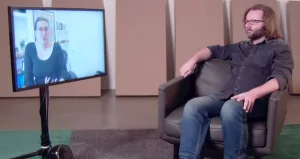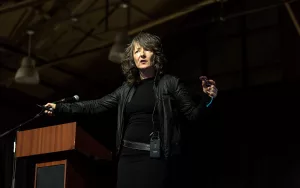
Game + Community Design
Dames Making Games (DMG) founder Izzie Colpitts-Campbell speaks with us about her art and design practice and how her role as a community organizer influenced her contributions to the DEL. In this conversation we discuss her new DMG project Damage Labs, similarities between game design and community organizing, and how artist solidarity can be provoked digitally.
